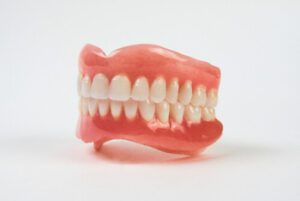When faced with tooth loss, one of the most common questions is: “How much do dentures cost?” The answer depends on various factors, including the type of dentures, the materials used, and the denture clinic you choose. This blog explores denture costs, what affects them, and how to find the best fit for your needs—both literally and financially.
Let’s dive into the world of false teeth and uncover the information you need to make an informed decision.
What Are Dentures and Why Might You Need Them?
Dentures, or artificial teeth, are custom-made dental appliances designed to replace missing teeth. Dentures can restore both functionality and appearance, whether your tooth loss is caused by gum disease, tooth decay, or an accident. They also support facial muscles, improving your overall oral and facial health.
Dentures are a popular option for those looking for an affordable way to regain their smile without resorting to more invasive solutions like dental implants.
Types of Dentures and Their Costs: Which One Is Right for You?
When considering dentures, understanding the multiple types available and their associated costs is essential. The choice between complete dentures, partial dentures, and implant-supported dentures depends on your dental needs, lifestyle, and budget. Here’s a closer look at these three popular options:
Complete Dentures

Cost: Starting from $1,500 per arch.
Who They’re For: Ideal for individuals who have lost all their teeth in either the upper or lower jaw due to tooth decay, gum disease, or other reasons.
Pros:
- Restores functionality and appearance.
- Affordable compared to more advanced options like implant-supported dentures.
Cons:
- It may require periodic adjustments as gum tissue changes over time.
- It can be less stable than other types of dentures without proper denture adhesive.
- Complete dentures are a popular option for those looking for an effective and cost-friendly way to replace an entire set of missing teeth.
Partial Dentures
Partial dentures are a perfect solution if you still have some natural teeth intact. They are custom-designed to fill gaps left by missing teeth, helping maintain the position of your remaining teeth and restoring functionality.
Cost: Typically ranges from $700 depending on materials and complexity.
Who They’re For is Ideal for people with several missing teeth but still have some real teeth that are healthy.
Pros:
- Preserves the position of remaining teeth, preventing them from shifting.
- It can be more affordable and less invasive than dental implants.
Cons:
- It may need denture repairs or adjustments over time.
- Less stable than implant-supported dentures.
Modern partial dentures are available in a range of materials, including acrylic dentures and metal frameworks, offering both functionality and aesthetic appeal.
Implant-Supported Dentures
For those seeking the most stable and durable solution, implant-supported dentures offer a permanent way to replace missing teeth. These dentures are securely anchored using dental implants, offering exceptional support and functionality.
Cost: Starting from $15,000 for a full set.
Who They’re For: Best for individuals seeking a long-term solution and are suitable candidates for surgical or invasive procedures.
Pros:
- Most natural look and feel.
- Eliminates the need for denture adhesive.
- Long-lasting and highly durable.
Cons:
- Higher upfront cost.
- Requires a healing process after implant placement.
Implant-supported dentures are an ideal solution for those who want a secure fit and don’t mind the additional time and cost required for the surgical procedure.
What Affects the Cost of Dentures? Key Factors to Know
Several factors can affect the cost of dentures, including:
- Material Quality: Cheaper materials may lower costs but may not offer the same durability as quality materials.
- Denture Type: Full, partial, or implant-supported dentures come at varying price points.
- Private Clinic vs Public Services: Clinics with appropriately qualified health practitioners may charge more for personalised treatment plans.
- Ongoing Maintenance: Dentures typically require adjustments, relining, or repairs over time.
- Associated Costs: Services like tooth extractions, denture services, and the healing process can add to the final price.
Flexible Payment and Financing Options for Your Dentures
Getting dentures doesn’t have to be a financial burden. With various payment and financing options available, you can manage the cost of dentures more comfortably while receiving the premium dental care you deserve. Here are some common financing solutions that might help:
Payment Plans: Buy Now, Pay Later Services
Payment platforms like Afterpay, TLC and Zip allow you to split the cost of dentures into manageable instalments. These services often provide interest-free or low-interest options, making it easier to stay within your budget while accessing high-quality dental treatment.
Superannuation Access
Programs like SuperCare offer a way to access your superannuation early to cover significant dental expenses, including denture costs. This option is ideal for those facing urgent dental needs and can alleviate financial pressure.
Private Health Insurance
Many private health insurance plans offer coverage for denture treatment. Depending on your policy, you may receive partial or full reimbursement for expenses like denture repairs, partial dentures, or complete dentures.
Medicare Schemes for Seniors
Eligible seniors may benefit from schemes designed to provide affordable denture services and other dental care. Check with your clinic to see if you qualify for such programs, which could significantly reduce the associated costs.
Government Support for Veterans
If you’re a veteran, you might be eligible for dental care under veteran-specific health schemes. These programs often cover a range of dental services, including dentures, ensuring you get the treatment you need at little to no out-of-pocket expense.
Metro South Health Scheme
Eligible patients may benefit from the Metro South Health Scheme, which provides vouchers for dental services. These vouchers can be used at participating private clinics, helping to reduce or eliminate out-of-pocket costs for necessary denture treatment.
Benefits of Investing in Quality Dentures
Spending a little more on quality dentures can save you money in the long run. They provide better fit, comfort, and durability, reducing the need for frequent repairs or replacements. Investing in the right denture type can also enhance your oral health and overall quality of life.
Dentures vs Other Tooth Replacement Options: What’s Best for You?
When considering ways to replace missing teeth, it’s important to weigh the benefits and drawbacks of different dental solutions. While dentures remain a popular and cost-effective option, other alternatives like dental implants and dental bridges offer unique advantages. Here’s a comparison to help you make an informed choice.
Dentures: The Affordable Classic
Dentures, available as complete dentures or partial dentures, are custom-made to replace multiple missing teeth. They are the most accessible and affordable solution, with costs starting from $700, depending on the type and materials used. Since they are non-invasive and require no surgery, they are suitable for multiple patients.
However, dentures may feel less stable than alternatives like implants and often require the use of denture adhesive for security. Over time, changes in the shape of your gum tissue may necessitate denture relining or replacements. Additionally, dentures are unable to prevent bone loss in the jaw, a concern for long-term oral health. Despite these limitations, dentures remain a reliable and cost-effective choice for many.
Dental Implants: The Gold Standard
Dental implants are often regarded as the most durable and natural-feeling solution for tooth replacement. These titanium posts, surgically fixed into the jawbone, act as artificial roots to support crowns, bridges, or implant-supported dentures. While the upfront cost is higher, their longevity and stability are unmatched.
Implants are able to prevent bone loss in the jaw by stimulating the bone, which dentures and bridges cannot achieve. They are also a permanent solution, with proper care allowing them to last 15–25 years or longer. However, implants are not suitable for everyone, particularly those with insufficient bone density or certain medical conditions. They also require a surgical or invasive procedure and a significant healing process.
Dental Bridges: A Fixed Alternative
For smaller gaps caused by missing teeth, dental bridges provide a fixed, stable solution. Bridges use adjacent natural teeth or implants as anchors to support the artificial tooth or teeth, offering a seamless and aesthetically pleasing result. Costs typically start at $2,000, making them more affordable than implants but more expensive than dentures.
Unlike dentures, bridges do not require daily removal and feel more natural when used. However, bridges come with their own drawbacks. If supported by natural teeth, the healthy adjacent teeth must be altered, which can compromise their strength. Bridges also can not prevent bone loss in the jaw, similar to dentures. They are ideal for patients with smaller gaps who want a non-removable option but do not wish to undergo implant surgery.
Which Option Is Best for You?
Choosing between dentures, dental implants, and dental bridges depends on your unique needs, oral health condition, and budget. Dentures are ideal for those seeking a cost-effective, non-invasive solution for multiple missing teeth. Implants offer a permanent and natural-feeling option, especially for those concerned about bone health and long-term durability. Bridges are a practical choice for smaller gaps, providing a fixed and aesthetically pleasing result without the invasiveness of implants.
Ultimately, consulting with an appropriately qualified health practitioner is the best way to determine the most suitable option for your situation. Whether you need the affordability of dentures, the durability of implants, or the convenience of bridges, restoring your smile is always worth the investment.
Your Step-by-Step Guide to Getting Dentures
Getting dentures is a multi-step process designed to ensure a customised fit and optimal functionality. Here’s a step-by-step breakdown:
- Initial Consultation: During this visit, your dentist will evaluate your oral health, discuss your needs, and recommend the best denture type for you.
- Impressions and Measurements: Impressions of your upper and lower jaws are taken to create a model for your dentures. Bite measurements are also recorded to ensure alignment and comfort.
- Trial Fitting: A wax model of your dentures is created to test fit, shape, and colour. Adjustments are made as necessary before the final denture is produced.
- Final Fitting: The completed dentures are fitted, and your dentist will guide you on how to wear and care for them.
- Follow-Up Appointments: Adjustments may be needed to address any initial discomfort or improve the fit.
The time it takes to get dentures depends on the type:
- Traditional Dentures: Typically take 4–6 weeks, as the process involves multiple appointments for measurements, fittings, and adjustments.
- Implant-Supported Dentures: The process can take several months, as it involves surgically placing dental implants, followed by a healing period of 3–6 months to allow the implants to integrate with the jawbone before the dentures are attached.
Adapting to new dentures takes time. Here are some tips to make the transition smoother:
- Practise Speaking and Eating: Start with soft foods and read aloud to adjust to the feel of your dentures.
- Use Denture Adhesive For added stability during the initial weeks.
- Follow-Up Visits: Schedule check-ups with your dentist to address any issues with fit or discomfort.
Why Choose Dentures? Transforming Smiles and Lives
Dentures are more than just a solution for missing teeth—they’re a gateway to improved confidence, better health, and a restored sense of normalcy. Whether you’re looking to eat your favourite foods again, speak clearly, or regain a vibrant smile, dentures offer a practical and transformative option. Let’s explore the incredible benefits they bring to your life.
Improved Quality of Life
Dentures regain your ability to eat, speak, and smile with confidence, allowing you to enjoy everyday activities comfortably and without embarrassment.
Health Benefits
Replacing missing teeth with dentures helps prevent further dental problems, such as tooth loss or misalignment. Properly fitted dentures also reduce strain on your jaw and promote better chewing, which can improve digestion and overall health.
Aesthetic Enhancements
Dentures support facial muscles, preventing the sunken appearance often associated with tooth loss. They also enhance your smile, boosting self-esteem and confidence in social settings.
Common Challenges with Dentures
While dentures are a fantastic solution for missing teeth, they come with their own set of challenges. Understanding these issues and how to address them ensures a smoother experience and greater comfort. Let’s dive into some common problems denture wearers face and how to overcome them effectively.
Ill-Fitting Dentures
Poorly fitted dentures can cause discomfort, sore spots, or difficulty speaking and eating. Signs of ill-fitting dentures include slipping or clicking during use. Regular adjustments by a dentist can address these issues, ensuring a comfortable fit.
Maintenance Requirements
Dentures require a consistent cleaning routine to prevent gum disease and maintain oral health. Use a soft denture brush and non-abrasive cleanser, and rinse them after meals. A denture adhesive can provide added stability but should not replace a proper fit.
Repairs and Relining
Over time, dentures may require repairs or relining to accommodate natural changes in your gums and jawbone. Relining adjusts the fit by adding new material to the denture base while repairs address cracks or other damage. These services are essential to maintaining your dentures’ functionality and comfort.
Caring for Your Dentures: Keep Them Clean and Comfortable

Daily Cleaning Routine
- Remove your dentures after meals and rinse them under warm water to remove food particles.
- Brush them daily with a denture-specific cleanser to prevent stains and build-up of bacteria.
- Refrain from using toothpaste, as its abrasiveness can damage the denture surface.
Storage Tips
- Always keep your dentures in a glass of water or a denture-soaking solution when not in use to prevent them from drying out and losing their shape.
- Keep them in a safe place to avoid accidental drops or damage.
Maintaining Oral Health
Maintaining good oral hygiene is critical, even with dentures. Clean your gum tissue, tongue, and any remaining natural teeth daily to prevent infections and keep your breath fresh. Regular dental check-ups are necessary to ensure your dentures fit properly and your oral health remains in good condition.
FAQs Section
How long do dentures last?
Dentures typically last 5–10 years, depending on the materials used and how well they’re cared for. Over time, natural changes in your gums and jaw may require adjustments or replacements.
Can I sleep with dentures in?
While you can sleep with dentures, it’s generally recommended to remove them at night. This allows your gums to rest and minimises the risk of infections.
Do dentures affect taste?
Dentures may initially affect your ability to taste food, particularly if the upper denture covers the palate. However, most people adapt over time.
What’s the difference between temporary dentures and permanent dentures?
- Temporary Dentures: Provided immediately after tooth extraction to maintain appearance and functionality during the healing process.
- Permanent Dentures: Custom-made for long-term use, designed to fit precisely once your gums have healed fully.
How Many Teeth Can Dentures Replace?
Dentures can replace anything from a single tooth to an entire arch. Partial dentures are perfect for filling smaller gaps, while complete dentures are designed to restore a full jaw of teeth.
Are Dentures Comfortable?
Modern dental services ensure that dentures fit comfortably, but some denture wearers may experience minor discomfort initially. Proper adjustments by a dental professional can resolve this.
Do Dentures Require Ongoing Maintenance?
Yes, denture wearers should expect ongoing maintenance, including periodic adjustments, denture repairs, and relining.
The Final Word on Denture Costs

No matter your choice, prioritising your oral health and seeking treatment from an appropriately qualified health practitioner will ensure a long-lasting, confident smile.
For personalised advice and high-quality dentures, contact Balmoral Dental Centre at (07) 3113 9789 today!
Note: Any surgical or invasive procedure carries risks. Before proceeding, you should seek a second opinion from an appropriately qualified health practitioner.
References:
- Colgate. (n.d.). Implant-supported denture. Colgate Oral Health Center. Retrieved from https://www.colgate.com/en-us/oral-health/dentures/implant-supported-denture
- WebMD. (n.d.). Dentures. WebMD. Retrieved from https://www.webmd.com/oral-health/dental-health-dentures
- Metro South Health. (n.d.). Research support scheme (MSH RSS). Metro South Health Queensland. Retrieved from https://www.metrosouth.health.qld.gov.au/research/research-grants/research-support-scheme#:~:text=13%20November%202024.-,About%20the%20Metro%20South%20Health%20Research%20Support%20Scheme%20(MSH%20RSS,improve%20health%20in%20Queensland’s%20communities.
- My SuperCare. (n.d.). My SuperCare. Retrieved from https://www.mysupercare.com.au/
- Cleveland Clinic. (n.d.). Dental impressions. Cleveland Clinic. Retrieved from https://my.clevelandclinic.org/health/diagnostics/22671-dental-impressions
- Mayo Clinic. (n.d.). Denture care: Expert answers. Mayo Clinic. Retrieved from https://www.mayoclinic.org/denture-care/expert-answers/faq-20058375

